
Cúcuta: The Gateway to Colombia's Northeastern Charm
Cúcuta, officially known as San José de Cúcuta, is a vibrant city located in the northeastern part of Colombia. As the capital of the Norte de Santander Department, it serves as a vital commercial and cultural hub, connecting Colombia with Venezuela. The city's rich history is evidenced by its colonial architecture, historical landmarks, and museums that tell the story of its role in the country's independence. Cúcuta is renowned for its warm and welcoming climate, earning it the nickname 'La Ciudad de los Árboles' (The City of Trees). The lush green parks and shaded streets offer a refreshing escape from the hustle and bustle, making it an ideal place for leisurely strolls. The city's main square, Plaza de Santander, is a popular gathering spot where you can enjoy local cuisine, shop for artisanal crafts, or simply relax and people-watch. For nature enthusiasts, Cúcuta offers easy access to stunning landscapes and outdoor activities. The nearby Pamplona and Los Estoraques Natural Park provide opportunities for hiking, bird-watching, and exploring unique rock formations. The city also hosts numerous cultural festivals throughout the year, including the International Piano Festival and the Cúcuta Carnival, which showcase the region's rich cultural heritage and lively spirit.
Local tips in Cúcuta
- Visit the Casa de la Cultura for a deep dive into local art and history.
- Try the traditional 'mute' soup at a local restaurant to experience authentic regional cuisine.
- Exchange currency at official bureaus to avoid scams and get better rates.
- Take a day trip to the nearby town of Pamplona for its colonial charm and cooler climate.
- Wear comfortable walking shoes as many attractions are best explored on foot.
Cúcuta: The Gateway to Colombia's Northeastern Charm
Cúcuta, officially known as San José de Cúcuta, is a vibrant city located in the northeastern part of Colombia. As the capital of the Norte de Santander Department, it serves as a vital commercial and cultural hub, connecting Colombia with Venezuela. The city's rich history is evidenced by its colonial architecture, historical landmarks, and museums that tell the story of its role in the country's independence. Cúcuta is renowned for its warm and welcoming climate, earning it the nickname 'La Ciudad de los Árboles' (The City of Trees). The lush green parks and shaded streets offer a refreshing escape from the hustle and bustle, making it an ideal place for leisurely strolls. The city's main square, Plaza de Santander, is a popular gathering spot where you can enjoy local cuisine, shop for artisanal crafts, or simply relax and people-watch. For nature enthusiasts, Cúcuta offers easy access to stunning landscapes and outdoor activities. The nearby Pamplona and Los Estoraques Natural Park provide opportunities for hiking, bird-watching, and exploring unique rock formations. The city also hosts numerous cultural festivals throughout the year, including the International Piano Festival and the Cúcuta Carnival, which showcase the region's rich cultural heritage and lively spirit.
When is the best time to go to Cúcuta?
Iconic landmarks you can’t miss
Parque Santander
Explore the lush greenery and cultural heritage of Parque Santander, a serene urban oasis in Cúcuta, perfect for relaxation and recreation.
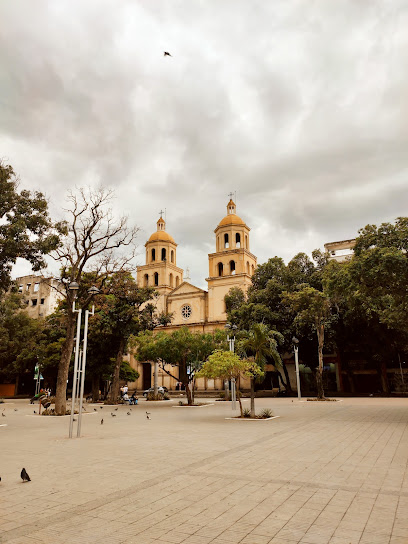
La Victoria Park
Experience the tranquility of La Victoria Park in Cúcuta, a green sanctuary perfect for relaxation, recreation, and cultural exploration.
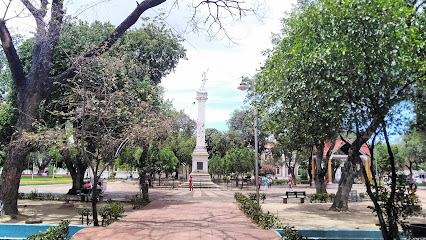
Parque Mercedes Abrego
Discover the beauty and culture of Cúcuta at Parque Mercedes Abrego, a vibrant park perfect for relaxation, recreation, and family fun.
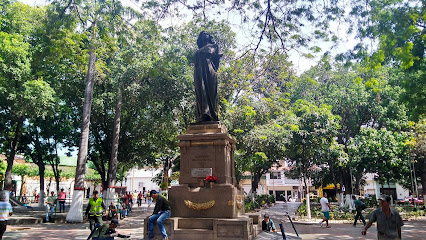
Nacional Park
Discover the captivating beauty of Nacional Park, a must-visit destination in Cúcuta, North Santander, for nature lovers and adventurers alike.
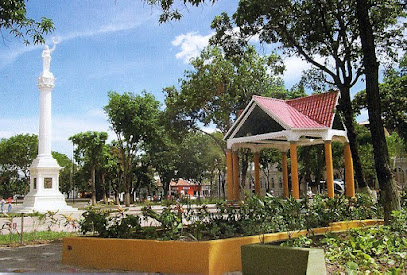
Cristo Rey monument
Experience the breathtaking views and cultural significance of the Cristo Rey Monument in Cúcuta, North Santander, a must-see for every traveler.
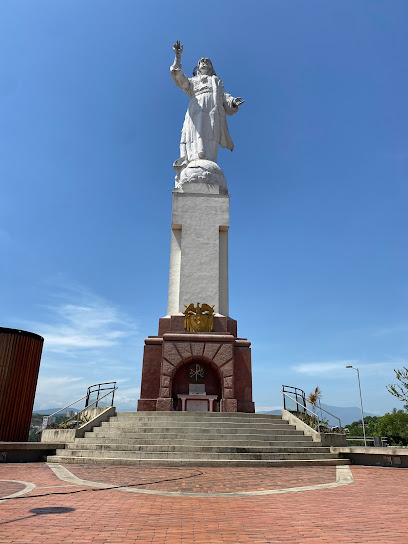
Nicolas Colmenares Park
Explore the lush landscapes and vibrant community life at Nicolas Colmenares Park, a serene escape in Cúcuta, Norte de Santander.
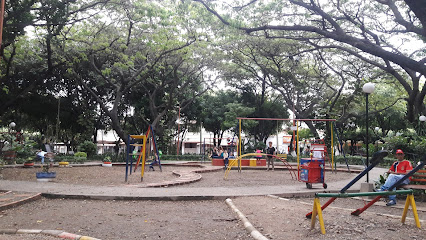
Simón Bolívar Park
Discover the beauty of nature and local culture at Simón Bolívar Park in Cúcuta - a serene escape for all travelers.
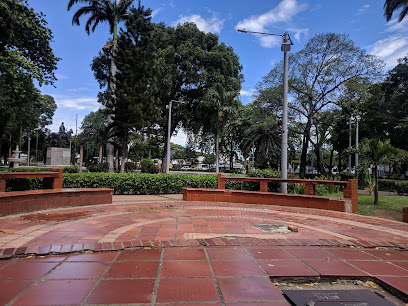
Historic church of Villa del Rosario
Explore the Historic Church of Villa del Rosario, a stunning example of Colonial architecture and a significant cultural landmark in Norte de Santander, Colombia.
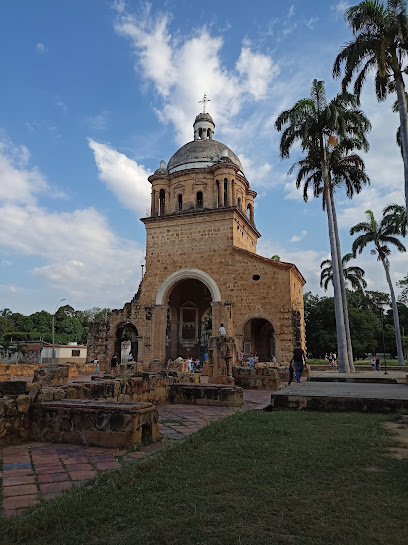
Teatro Zulima
Experience the vibrant cultural scene at Teatro Zulima in Cucuta, Colombia, showcasing a variety of performing arts from theater to music.
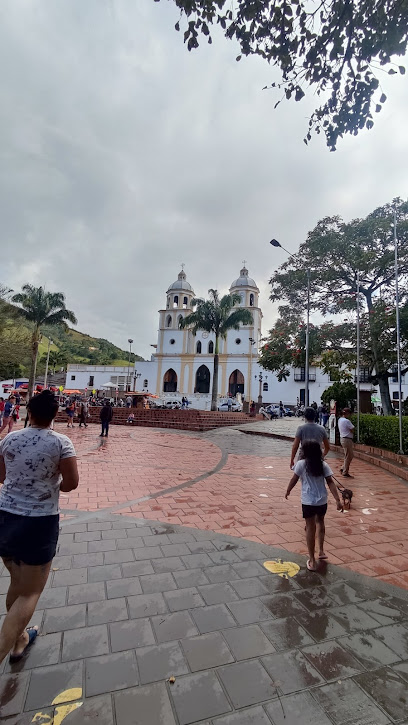
Monument to the Indian Motilon
Explore the Monument to the Indian Motilon in Cúcuta, a cultural treasure celebrating indigenous heritage amidst vibrant local life.
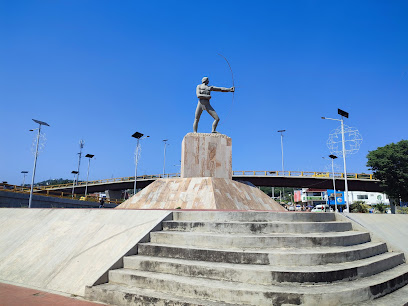
Iguana Park Parque De Diversiones
Discover the excitement of Iguana Park in Cúcuta, Colombia – a thrilling amusement park filled with rides and attractions for all ages.
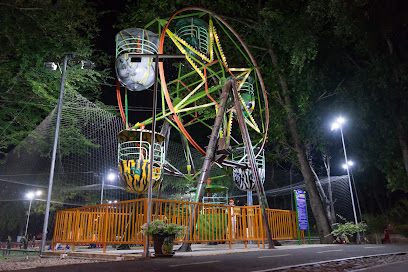
Tourist Mirador Del Cerro Jesús Nazareno
Explore the breathtaking vistas and spiritual charm of Mirador Del Cerro Jesús Nazareno in Cúcuta, a perfect blend of nature and culture.
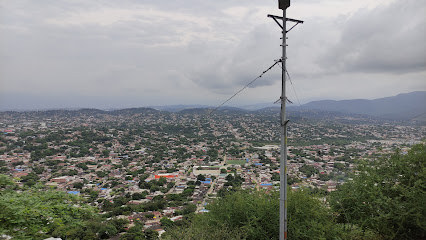
Park 300 Years
Discover tranquility and culture at Park 300 Years in Cúcuta, a vibrant city park perfect for relaxation and exploration.
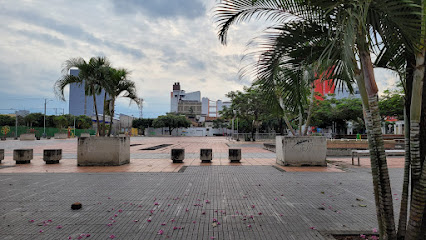
Columna de Padilla
Discover the Columna de Padilla, a historical monument in Cúcuta, Colombia, celebrating the legacy of Francisco de Miranda amidst rich culture.
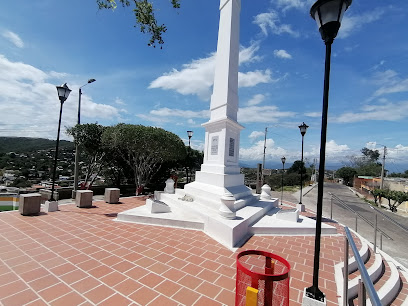
Monumento Yo Amo a Cúcuta
Explore the vibrant Monumento Yo Amo a Cúcuta, a symbol of love and cultural pride in Cúcuta, North Santander, perfect for photos and local experiences.
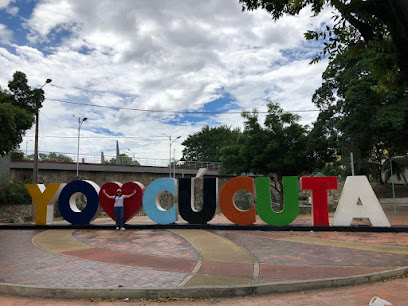
Unmissable attractions to see
Parque Santander
Explore Parque Santander in Cucuta, a lush urban park perfect for relaxation, picnics, and immersing yourself in local culture.
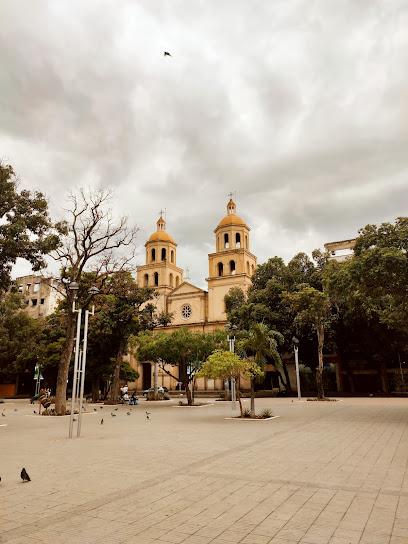
Parque Mercedes Abrego
Experience the tranquility and beauty of Parque Mercedes Abrego, a top tourist attraction in Cúcuta, Colombia's serene escape amidst nature and community.
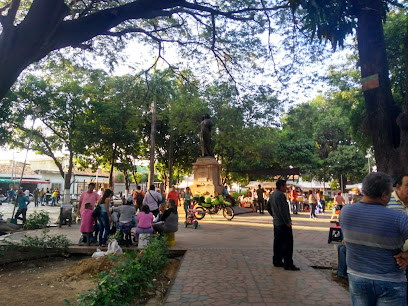
Nacional Park
Discover the serene beauty and diverse wildlife of Nacional Park in Cúcuta, a perfect getaway for nature lovers and adventure seekers.
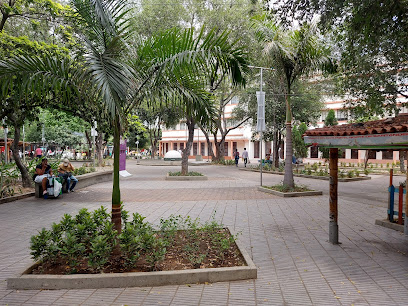
Circus Pop
Discover the thrills of Circus Pop, an amusement park in Cúcuta, where adventure awaits for the whole family amidst vibrant attractions and entertainment.
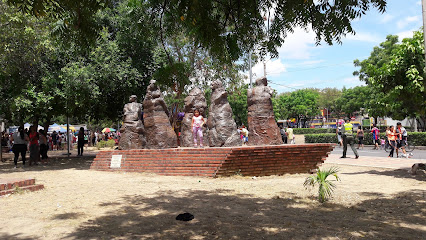
Cristo Rey monument
Explore the breathtaking Cristo Rey monument in Cúcuta, a stunning landmark offering panoramic views and a tranquil park atmosphere.
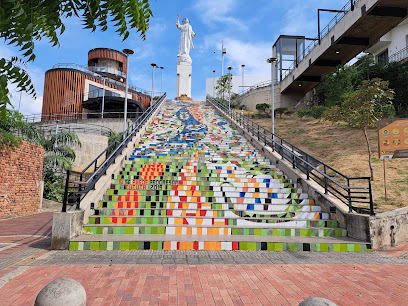
Nicolas Colmenares Park
Discover the natural beauty and vibrant community spirit at Nicolas Colmenares Park in Cúcuta, a perfect spot for relaxation and family fun.
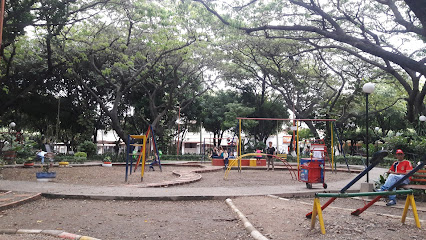
Historic church of Villa del Rosario
Discover the Historic Church of Villa del Rosario, a cultural gem in North Santander, rich in history and breathtaking architecture.
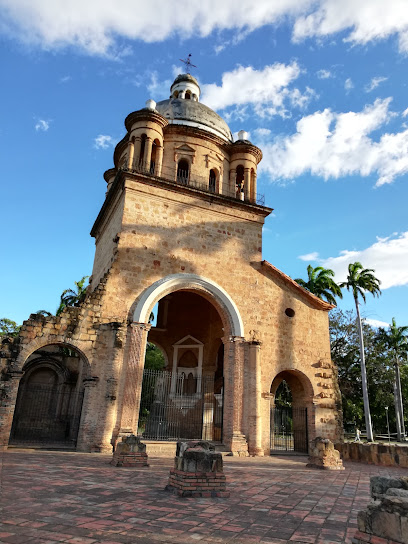
Tourist Mirador Del Cerro Jesús Nazareno
Discover breathtaking views and spiritual tranquility at Mirador Del Cerro Jesús Nazareno in Cúcuta, Norte de Santander, Colombia.
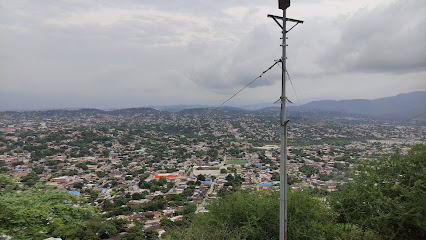
Puente de Guadua
Discover the stunning Puente de Guadua in Cúcuta, a striking bamboo bridge that melds nature with innovative architecture, perfect for your travel photos.
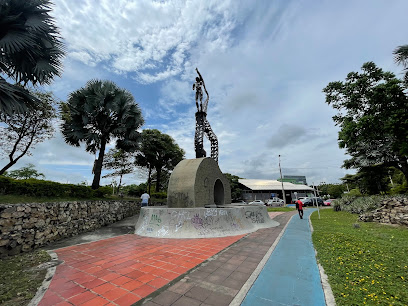
Parque #1 Aniversario 2
Explore the lush landscapes and vibrant community atmosphere at Parque #1 Aniversario 2, a must-visit park in Cúcuta, Colombia.
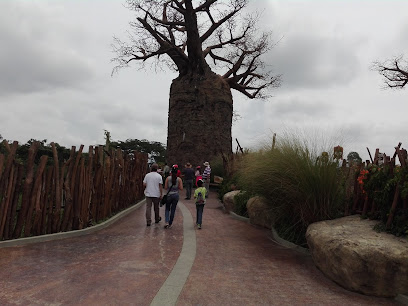
El Malecón Cúcuta
Discover El Malecón Cúcuta, a tranquil park along the Táchira River, perfect for relaxation, scenic views, and a taste of local culture.
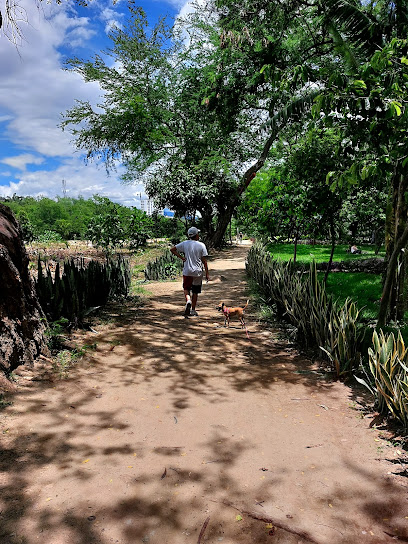
Museum of Memory
Explore the Museum of Memory in Cucuta, a vibrant art museum showcasing Colombia's rich history and creative spirit through captivating exhibits.
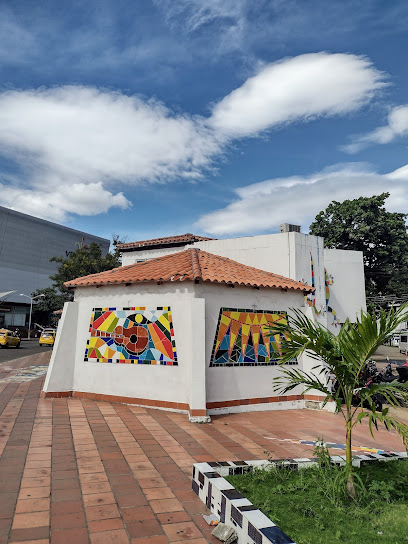
Museo Norte de Santander y ciudad de Cucuta.
Experience the vibrant culture of Norte de Santander at Museo Norte de Santander, an art museum showcasing the region's artistic heritage.
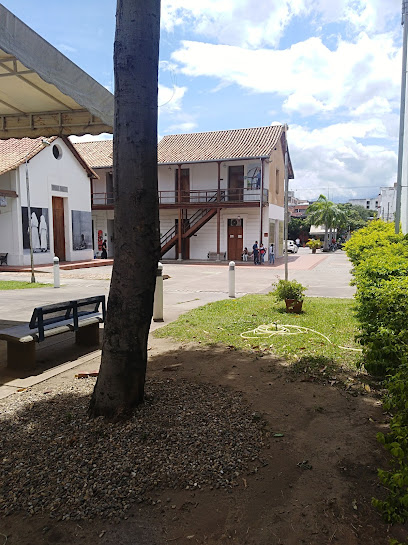
Monumento A La Batalla De Cúcuta
Explore the Monumento A La Batalla De Cúcuta, a historical landmark celebrating Colombia's heritage and valor in the heart of Cucuta.
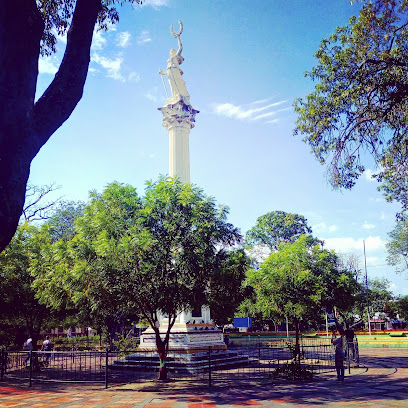
Parque del agua
Explore the lush landscapes and tranquil waters of Parque del Agua, a serene escape in Cúcuta, North Santander, ideal for relaxation and family fun.
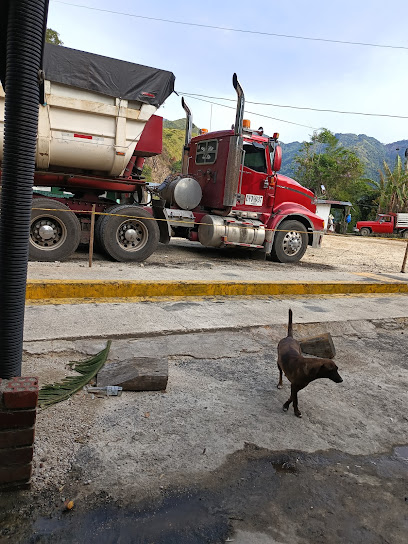
Essential places to dine
Rancho y Leña
Discover the vibrant flavors of Colombia at Rancho y Leña in Cúcuta—where culinary excellence meets picturesque views.
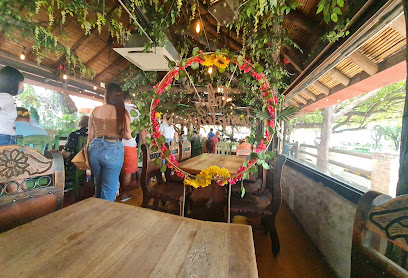
Old West
Savor authentic American cuisine at Old West in Cúcuta—where rustic charm meets vibrant flavors.
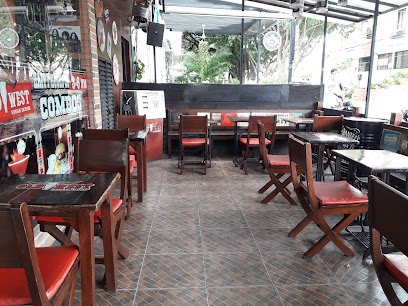
Restaurante Nan King Cúcuta
Experience exquisite Asian cuisine at Restaurante Nan King in Cúcuta - where tradition meets modern culinary artistry.
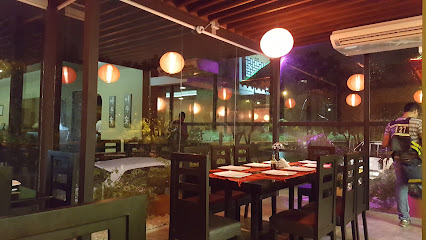
Karbon Y Son
Discover exquisite flavors at Karbon Y Son, an upscale restaurant in Cúcuta offering a blend of local and international cuisine.
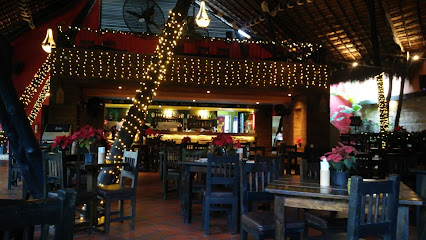
Restaurante El Balcón Paisa
Discover authentic Colombian cuisine at Restaurante El Balcón Paisa in Cúcuta – where tradition meets flavor amidst scenic views.
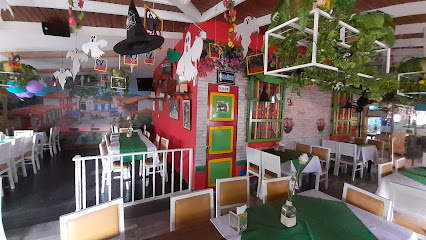
Rodizio Cúcuta
Savor the essence of Brazil with exceptional grilled meats and seafood at Rodizio Cúcuta - a must-visit culinary gem in Norte de Santander.
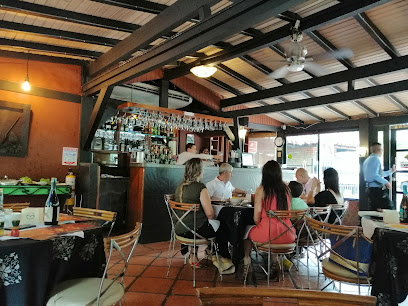
A Comer Se Dijo... Sede Colsag
Discover authentic Colombian flavors at A Comer Se Dijo... Sede Colsag in Cúcuta - a delightful dining experience awaits!
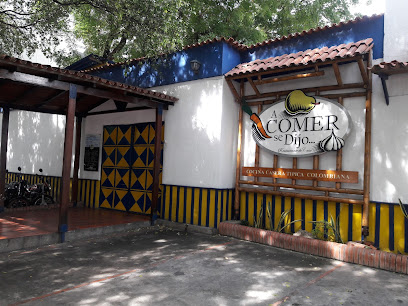
Restaurante An'k
Experience culinary excellence at Restaurante An'k in Cúcuta – where local flavors meet international cuisine in an elegant setting.
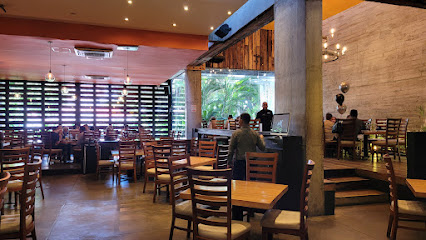
La Mazorca
Experience authentic Colombian cuisine at La Mazorca in Cúcuta—where every bite tells a story.
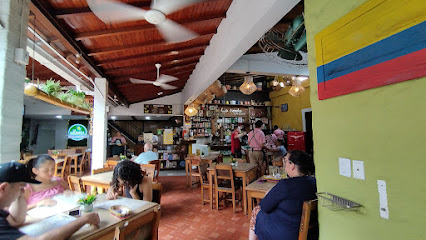
Galileo Restaurante Bar
Experience the best of Colombian cuisine at Galileo Restaurante Bar in Cúcuta – a delightful culinary journey awaits you!
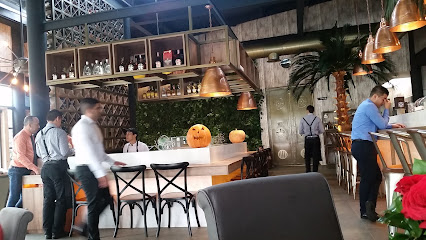
EPICCO RESTAURANTE
Discover the exquisite flavors of Colombia at EPICCO RESTAURANTE in Cúcuta—where traditional meets contemporary in every bite.
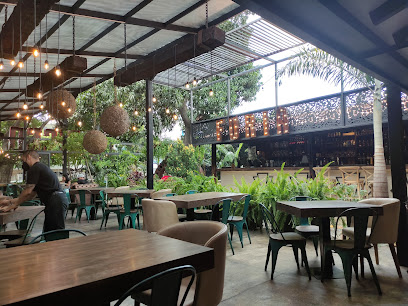
Spezia
Discover Spezia in Cúcuta - where traditional Colombian flavors meet modern culinary excellence for an unforgettable dining experience.

Casa Miyagi Cúcuta
Discover the rich flavors of authentic Japanese cuisine at Casa Miyagi in Cúcuta - where every meal is a delightful experience.
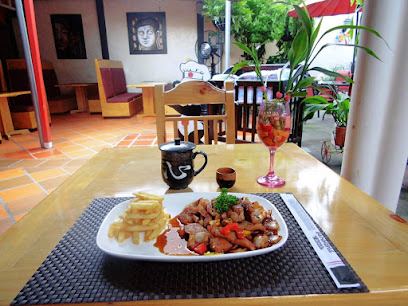
Restaurante Aceituna
Experience authentic Middle Eastern flavors at Restaurante Aceituna in Cúcuta – where every dish tells a story.
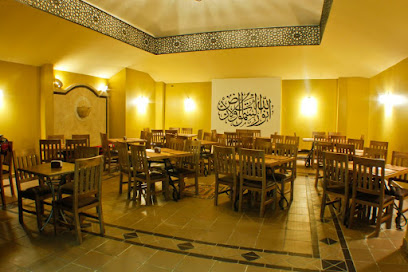
Old West Bellavista
Discover the delightful fusion of rustic charm and vibrant flavors at Old West Bellavista in Cúcuta - your destination for exquisite dining.
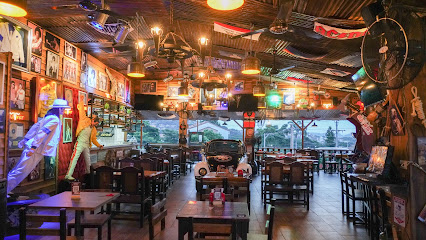
Markets, malls and hidden boutiques
Centro Comercial Ventura Plaza
Discover the vibrant shopping experience at Centro Comercial Ventura Plaza, where diverse shops and delightful dining await in Cúcuta.
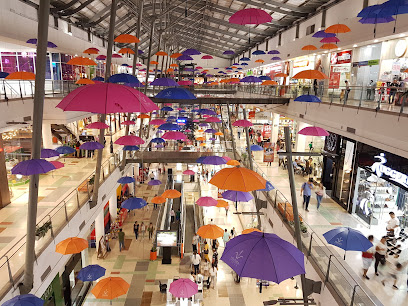
Alejandría Centro Comercial
Explore Alejandría Centro Comercial, Cúcuta's premier shopping mall, for a delightful mix of shopping, dining, and entertainment experiences.
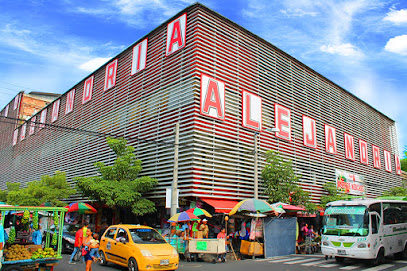
Unicentro Cúcuta Mall
Discover the vibrant shopping experience at Unicentro Cúcuta Mall, where local culture meets international brands for an unforgettable day of exploration.
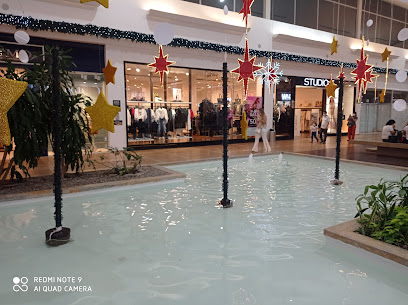
Jardin Plaza Shopping Mall
Experience the best of shopping and dining at Jardin Plaza Shopping Mall in Cúcuta, where variety meets excitement.
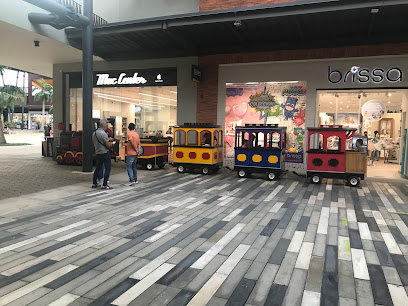
Arturo Calle
Discover exceptional men's and children's fashion at Arturo Calle, your go-to clothing store in Cúcuta for stylish attire and accessories.
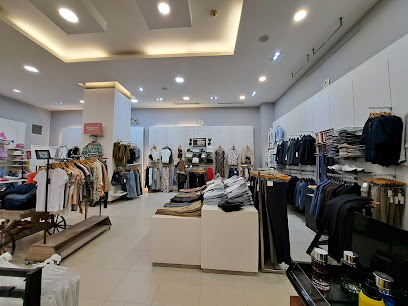
Coucou Ropa y Accesorios
Explore the vibrant world of fashion at Coucou Ropa y Accesorios in Cúcuta, where style meets exceptional service and trendy selections await.

Lili Pink
Shop at Lili Pink in Cúcuta for the latest women's fashion, accessories, and beauty products in a chic and stylish environment.

Tiendas La Ganga - todo en un solo lugar
Discover unbeatable deals and a wide range of products at Tiendas La Ganga, Cúcuta's favorite warehouse club.
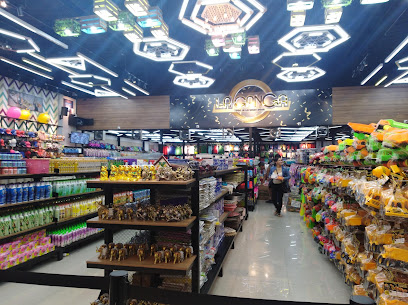
ONTA STORE
Discover the latest trends in men's, women's, and baby clothing at ONTA STORE, a premier fashion destination in Cúcuta's Ventura Plaza.

C.C Minitiendas
Discover shopping, dining, and entertainment at C.C Minitiendas in Cúcuta, a vibrant shopping mall that captures the essence of local culture.
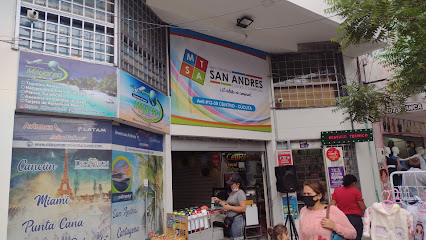
Lacoste Ventura Plaza Cucuta
Explore stylish fashion at Lacoste Ventura Plaza Cucuta, where quality meets trendy designs in a welcoming shopping environment.

MIC Ventura Plaza
Explore MIC Ventura Plaza in Cúcuta for stylish and comfortable children's clothing, combining quality and fun in every outfit.
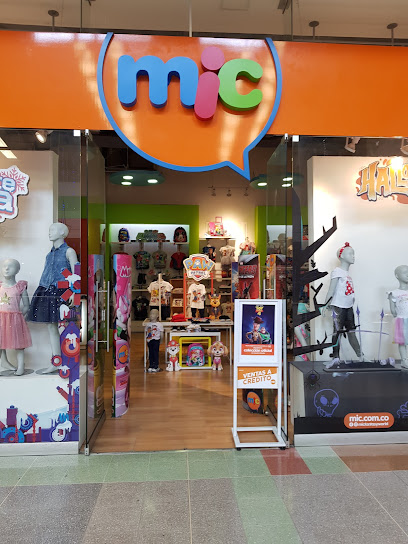
Wakala Detalles
Discover unique gifts and local artistry at Wakala Detalles, a charming gift shop in Cúcuta, perfect for souvenirs and mementos.
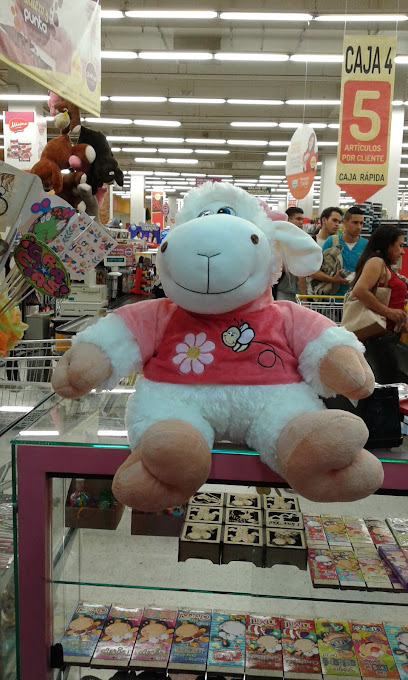
dulce tentacion boutique sexshop
Explore Dulce Tentacion Boutique in Cúcuta for a unique shopping experience filled with stylish women's clothing and personalized service.
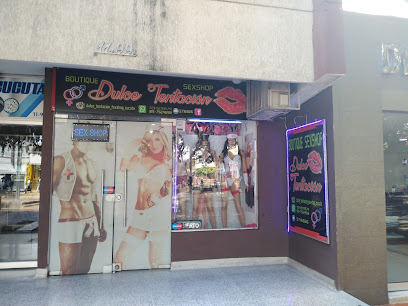
Los estoraques
Explore the breathtaking beauty of Los Estoraques, a unique destination in Cúcuta, North Santander, known for its stunning rock formations and serene landscapes.
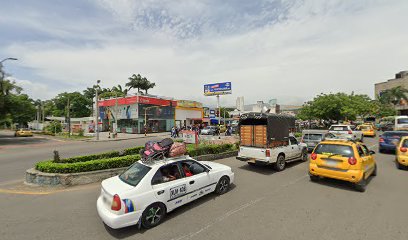
Essential bars & hidden hideouts
COCOLOCO
Discover Cúcuta's nightlife at COCOLOCO, a stylish cocktail bar offering creative drinks and a vibrant atmosphere for a memorable experience.
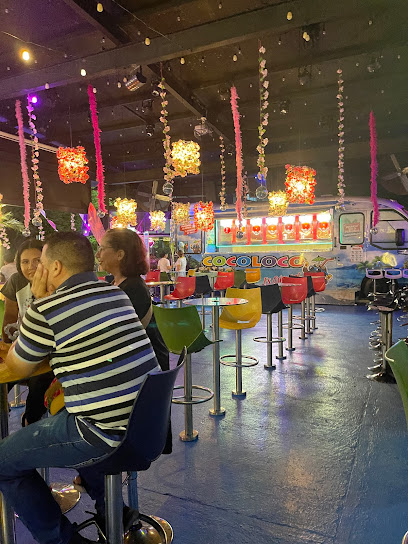
Dubai - Cocktails
Experience the vibrant cocktail culture of Dubai, where mixology meets luxury and every sip tells a story.
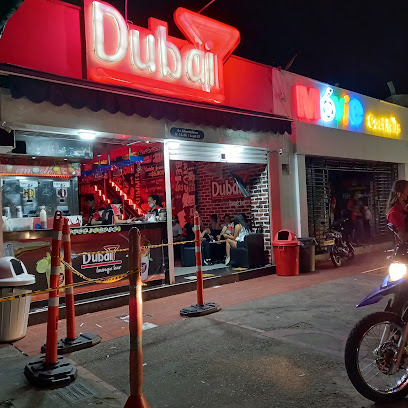
MILTONIC
Discover Miltonic: a vibrant bar in Cúcuta, perfect for a night of drinks, music, and unforgettable memories in Norte de Santander.
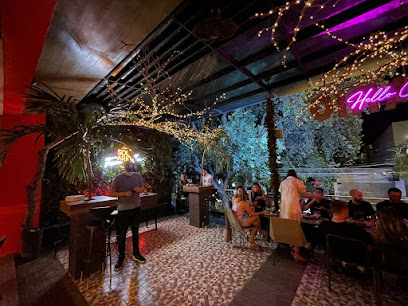
La Comarcka Rock
Discover the vibrant nightlife of Cúcuta at La Comarcka Rock, where great drinks and lively music create unforgettable experiences.
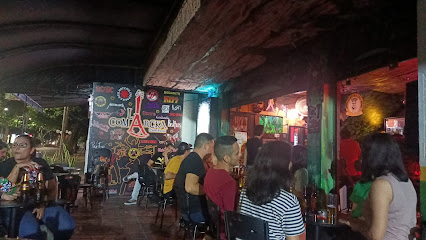
Leggenda Karaoke Bar
Experience the vibrant nightlife of Cúcuta at Leggenda Karaoke Bar, the ultimate destination for karaoke lovers and night owls alike.
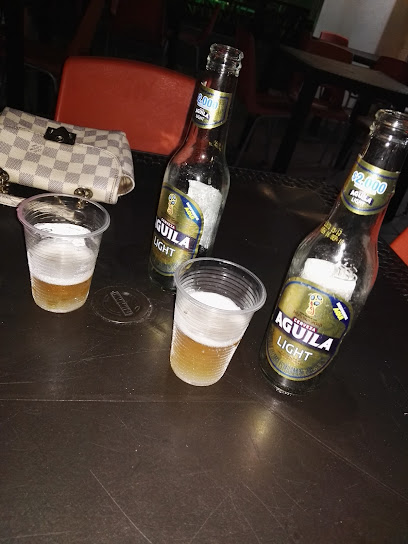
BAR GAY Raska2
Discover the lively atmosphere and diverse drink selection at BAR GAY Raska2, a must-visit bar in Cúcuta's vibrant nightlife scene.
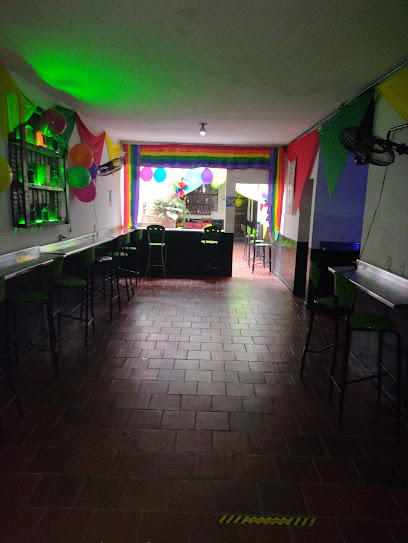
El Bar de Vicky
Discover the lively charm of El Bar de Vicky in Cúcuta, where vibrant nightlife meets delicious drinks in a welcoming atmosphere.
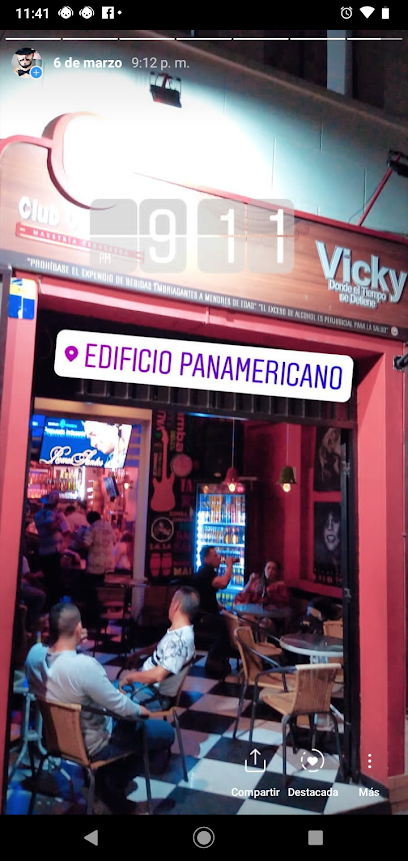
La Barra Bar
Discover La Barra Bar, Cúcuta's vibrant cocktail oasis offering expertly crafted drinks and a lively atmosphere for an unforgettable night.
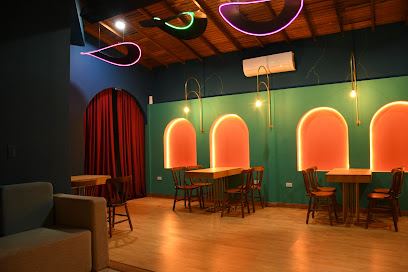
Neon Cocktail Bar
Experience the electrifying nightlife at Neon Cocktail Bar, Cúcuta's premier destination for cocktails and vibrant entertainment.
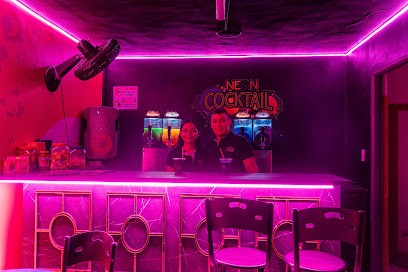
OhAhSis Bar
Discover the vibrant atmosphere of OhAhSis Bar in Cúcuta, where exquisite drinks and a welcoming vibe create the perfect nightlife experience.
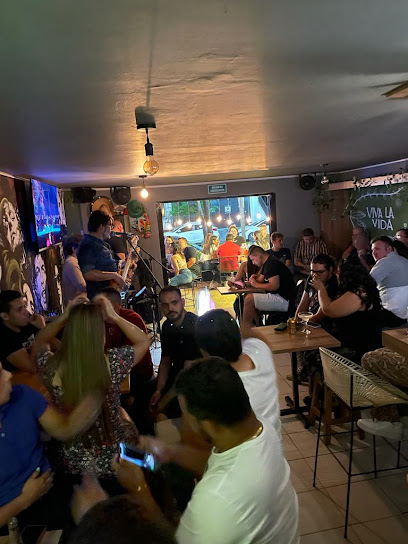
sky blue bar
Discover Sky Blue Bar in Cúcuta - a vibrant spot for refreshing drinks, great ambiance, and local entertainment in the heart of Norte de Santander.
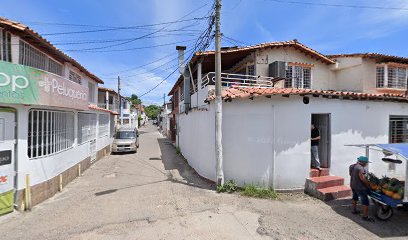
Waikiry Coffe & Cocktail
Discover the lively atmosphere and exquisite drinks at Waikiry Coffee & Cocktail, the perfect retreat in Cúcuta for coffee and cocktail lovers.
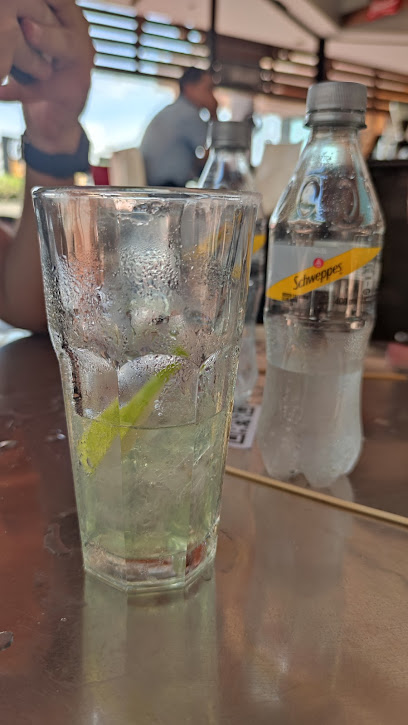
Will Bar los pinos
Experience the enchanting melodies and vibrant nightlife at Will Bar los Pinos in Cúcuta, a perfect piano bar for music lovers.
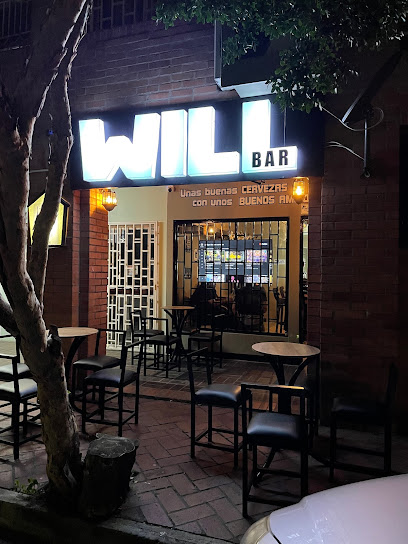
Eclipse Bar Show
Experience the vibrant nightlife at Eclipse Bar Show in Cúcuta, where cocktails and camaraderie create unforgettable moments.
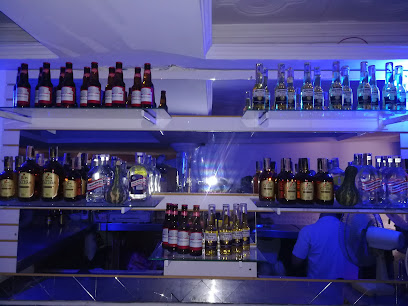
El Silencio Bar Show
Discover the lively nightlife at El Silencio Bar Show in Cúcuta, where great drinks and entertainment await in a vibrant atmosphere.
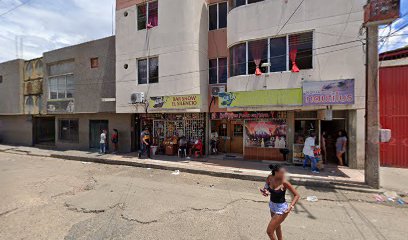
Local Phrases
-
- HelloHola
[oh-lah] - GoodbyeAdiós
[ah-dee-ohs] - YesSí
[see] - NoNo
[noh] - Please/You're welcomePor favor/De nada
[por fah-vor/deh nah-dah] - Thank youGracias
[grah-see-ahs] - Excuse me/SorryPerdón
[pehr-dohn] - How are you?¿Cómo estás?
[koh-moh ehs-tahs] - Fine. And you?Bien. ¿Y tú?
[byen. ee too] - Do you speak English?¿Hablas inglés?
[ah-blahs een-glehs] - I don't understandNo entiendo
[noh ehn-tyen-doh]
- HelloHola
-
- I'd like to see the menu, pleaseMe gustaría ver el menú, por favor
[meh goos-tah-ree-ah behr ehl meh-noo, por fah-vor] - I don't eat meatNo como carne
[noh koh-moh kahr-neh] - Cheers!¡Salud!
[sah-loohd] - I would like to pay, pleaseMe gustaría pagar, por favor
[meh goos-tah-ree-ah pah-gahr, por fah-vor]
- I'd like to see the menu, pleaseMe gustaría ver el menú, por favor
-
- Help!¡Ayuda!
[ah-yoo-dah] - Go away!¡Vete!
[veh-teh] - Call the Police!¡Llama a la Policía!
[yah-mah ah lah poh-lee-see-ah] - Call a doctor!¡Llama a un médico!
[yah-mah ah oon meh-dee-koh] - I'm lostEstoy perdido/a
[ehs-toy pehr-dee-doh/dah] - I'm illEstoy enfermo/a
[ehs-toy ehn-fehr-moh/dah]
- Help!¡Ayuda!
-
- I'd like to buy...Me gustaría comprar...
[meh goos-tah-ree-ah kohm-prahr] - I'm just lookingSolo estoy mirando
[soh-loh ehs-toy mee-rahn-doh] - How much is it?¿Cuánto cuesta?
[kwan-toh kwes-tah] - That's too expensiveEso es muy caro
[eh-soh ehs mwee kah-roh] - Can you lower the price?¿Puedes bajar el precio?
[pweh-dehs bah-har ehl pree-syoh]
- I'd like to buy...Me gustaría comprar...
-
- What time is it?¿Qué hora es?
[keh oh-rah ehs] - It's one o'clockEs la una
[ehs lah oo-nah] - Half past (10)Son las diez y media
[sohn lahs d'yehs ee meh-dee-ah] - MorningMañana
[mah-nyah-nah] - AfternoonTarde
[tahr-deh] - EveningNoche
[noh-cheh] - YesterdayAyer
[ah-yehr] - TodayHoy
[oy] - TomorrowMañana
[mah-nyah-nah] - 1Uno
[oo-noh] - 2Dos
[dohs] - 3Tres
[trehs] - 4Cuatro
[kwah-troh] - 5Cinco
[seen-koh] - 6Seis
[sehs] - 7Siete
[syeh-teh] - 8Ocho
[oh-choh] - 9Nueve
[nweh-veh] - 10Diez
[dyehs]
- What time is it?¿Qué hora es?
-
- Where's a/the...?¿Dónde está un/el...?
[dohn-deh ehs-tah oon/ehl] - What's the address?¿Cuál es la dirección?
[kwal ehs lah dee-rehk-syon] - Can you show me (on the map)?¿Puedes mostrarme (en el mapa)?
[pweh-dehs mohs-trar-meh (ehn ehl mah-pah)] - When's the next (bus)?¿Cuándo es el próximo (bus)?
[kwan-doh ehs ehl proh-ksee-moh (boos)] - A ticket (to ....)Un boleto (a ....)
[oon boh-leh-toh (ah ....)]
- Where's a/the...?¿Dónde está un/el...?
History of Cúcuta
-
Cúcuta was founded on June 17, 1733, by Juana Rangel de Cuéllar. Originally named San José de Guasimales, the city was established on the banks of the Pamplonita River. Its location made it a crucial settlement for trade and communication in the region.
-
The Battle of Cúcuta, which took place on February 28, 1813, was a significant event during the Spanish American wars of independence. Led by Simón Bolívar, the patriot forces defeated the Spanish royalists, marking a pivotal moment in the campaign for independence from Spanish rule.
-
On May 18, 1875, Cúcuta experienced a devastating earthquake that destroyed much of the city and surrounding areas. The earthquake, estimated at a magnitude of 7.5, led to significant loss of life and property. The city was subsequently rebuilt with modern urban planning and architecture.
-
The Treaty of Cúcuta, signed on August 30, 1821, was a pivotal agreement that formalized the creation of Gran Colombia, comprising modern-day Colombia, Venezuela, Ecuador, and Panama. The treaty was a result of the deliberations of the Congress of Cúcuta, which aimed to unify the newly independent territories.
-
In the late 19th and early 20th centuries, Cúcuta experienced an economic boom due to its strategic location near the Venezuelan border. The city's economy thrived on agriculture, trade, and later, the burgeoning coffee industry. This period saw significant urban development and population growth.
-
In recent years, Cúcuta has become a focal point for the Venezuelan migration crisis. Thousands of Venezuelans have crossed the border into Cúcuta seeking refuge from economic and political turmoil in their home country. The city has played a critical role in providing humanitarian aid and support to the influx of migrants.
Cúcuta Essentials
-
Cúcuta is accessible via Camilo Daza International Airport (CUC), which offers flights from major Colombian cities such as Bogotá, Medellín, and Cali. International connections are also available, primarily from Panama City. From the airport, you can take a taxi or rent a car to reach the city center, which is approximately 10 minutes away. Additionally, several bus companies operate routes connecting Cúcuta to other Colombian cities and neighboring Venezuela.
-
Cúcuta offers various transportation options, including taxis, buses, and mototaxis. Taxis are widely available and relatively affordable; it is advisable to use registered taxi services. The municipal bus system covers most areas of the city and is an economical option for getting around. Mototaxis are also popular for short distances but may not be the safest choice. Car rental services are available for those who prefer to drive.
-
The official currency in Colombia is the Colombian Peso (COP). Credit and debit cards are accepted in most hotels, restaurants, and shops in Cúcuta, but it is recommended to carry cash for smaller establishments and public markets. ATMs are widely available throughout the city. Currency exchange services can be found at the airport, banks, and specialized exchange bureaus.
-
While Cúcuta is generally safe for tourists, it is important to exercise caution. Avoid walking alone at night, especially in unfamiliar or poorly lit areas. Areas such as La Parada and nearby border zones can have higher crime rates, including petty theft and scams targeting tourists. Always keep an eye on your belongings and avoid displaying valuable items. It is advisable to use registered taxi services and stay in well-reviewed accommodations.
-
In case of emergency, dial 123 for immediate assistance. This number connects you to the police, fire department, and medical emergency services. There are several hospitals and clinics in Cúcuta, including Hospital Universitario Erasmo Meoz and Clínica Medical Duarte. It is recommended to have travel insurance that covers medical emergencies. Pharmacies are also readily available for minor health issues.
-
Fashion: Do dress comfortably and according to the weather. Avoid overly revealing clothing. Religion: Do respect local religious customs. When visiting churches, dress modestly and maintain a quiet demeanor. Public Transport: Do be respectful to fellow passengers. Don't eat or drink on public buses. Greetings: Do greet people with a handshake or a friendly 'Hola'. Eating & Drinking: Do try local dishes like arepas and tamales. Don't refuse food offerings as it may be considered impolite.
-
To experience Cúcuta like a local, visit the Ventura Plaza, one of the largest shopping centers in the city, where locals shop and dine. Explore the local markets, such as the Central Market, to buy fresh produce and traditional Colombian goods. Engage with locals, who are often friendly and eager to share their culture. Don't miss visiting the historic Casa de Santander and taking a stroll along Avenida Libertadores, a popular spot for locals to relax and socialize.
Trending Landmark in Cúcuta
-
Parque Santander
-
La Victoria Park
-
Parque Mercedes Abrego
-
Nacional Park
-
Cristo Rey monument
-
Nicolas Colmenares Park
-
Simón Bolívar Park
-
Historic church of Villa del Rosario
-
Teatro Zulima
-
Monument to the Indian Motilon
-
Iguana Park Parque De Diversiones
-
Tourist Mirador Del Cerro Jesús Nazareno
-
Park 300 Years
-
Columna de Padilla
-
Monumento Yo Amo a Cúcuta
Nearby Cities to Cúcuta
-
Things To Do in Tunja
-
Things To Do in Sincelejo
-
Things To Do in Medellín
-
Things To Do in Bogotá
-
Things To Do in Riohacha
-
Things To Do in Santa Marta
-
Things To Do in Barranquilla
-
Things To Do in Cartagena
-
Things To Do in Villavicencio
-
Things To Do in Manizales
-
Things To Do in Ibagué
-
Things To Do in Pereira
-
Things To Do in Armenia
-
Things To Do in Pos Chiquito
-
Things To Do in Savaneta












